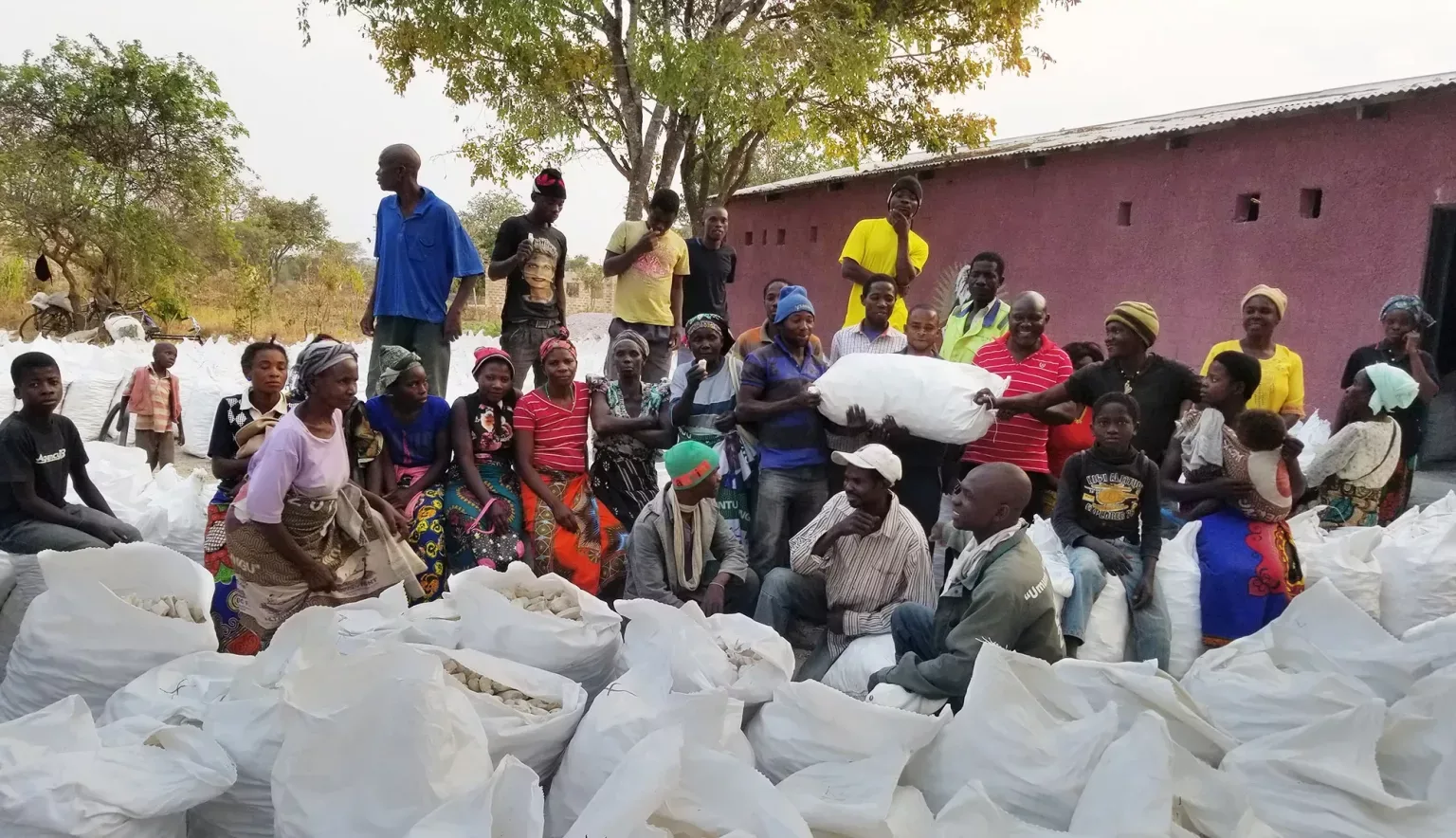Musika is committed to helping Zambia’s smallholders access vital agricultural technologies, financing and training initiatives, and making the agricultural sector more accessible and diverse.
INTRODUCTION
Since 2011, not-for-profit Musika has been supporting private investment into Zambia’s agricultural sector, focusing specifically on helping smallholders and Zambia’s rural poor.
It works according to the Making Markets Work for the Poor (M4P) methodology, which involves stimulating market systems so they allow greater involvement of the rural poor in economic development – in this case, by connecting smallholders with agribusinesses and productivity-enhancing technologies they would not normally have access to.
So far, its work has made a significant impact. Over 430,000 farmers across the nation are benefitting from improved access to capital and training, leading to an increased overall income of $45 million across Zambia’s smallholder farms. When we spoke to Musika’s Managing Director Reuben Banda last year, we discussed the not for profit’s focus on post-harvest support, the importance of crop diversification, and future plans of planting trees to mitigate the effects of climate change.
The Managing Director begins by catching us up on the occurrences of the past 12 months.
“The year 2020 started off on a positive note, with Musika’s investments more focused on implementing private sector-led interventions aimed at diversifying production for smallholders in order to increase their resilience, and safeguard their livelihoods against effects of climate change,” he explains.
It has also been working hard with its private partners to improve equal access to the market, by helping provide opportunities for women and youth to access capital, technology and training. Finally, thanks to a good commodity harvest for the 2019/20 season, the agricultural sector looks set to be one of the few registering positive growth this year.
“Musika’s partners offering asset financing benefited from the bumper harvest and recorded an upward trend around access to lease finance for various agricultural equipment,” Banda says – an opportunity which smallholders benefitted from.
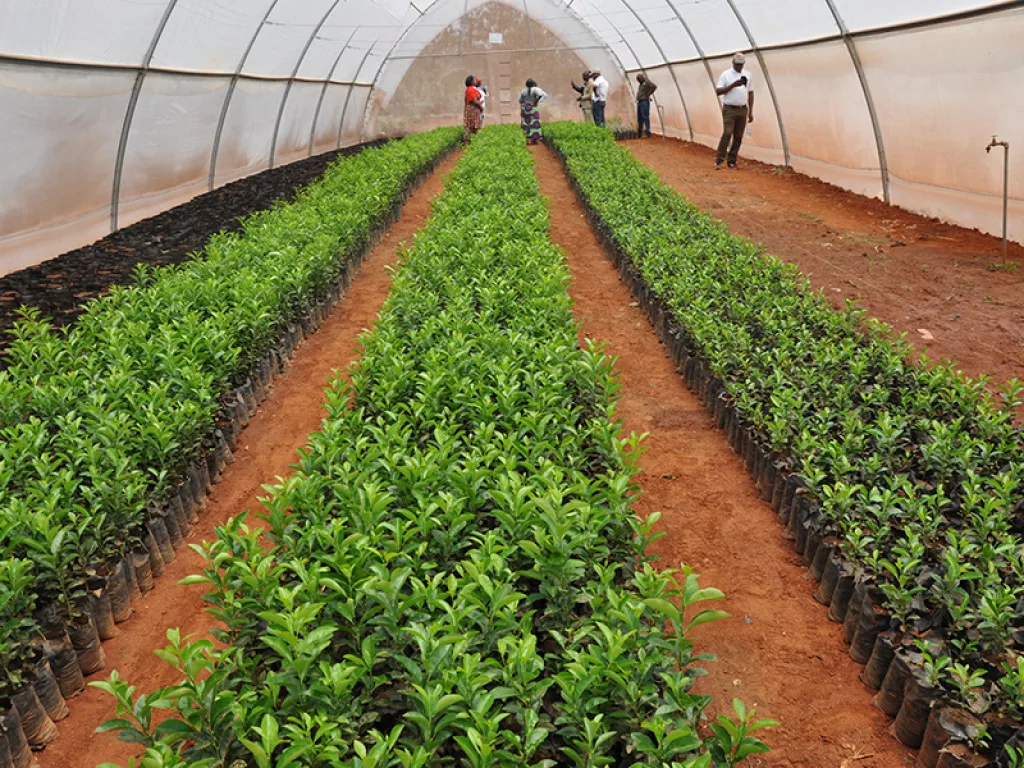
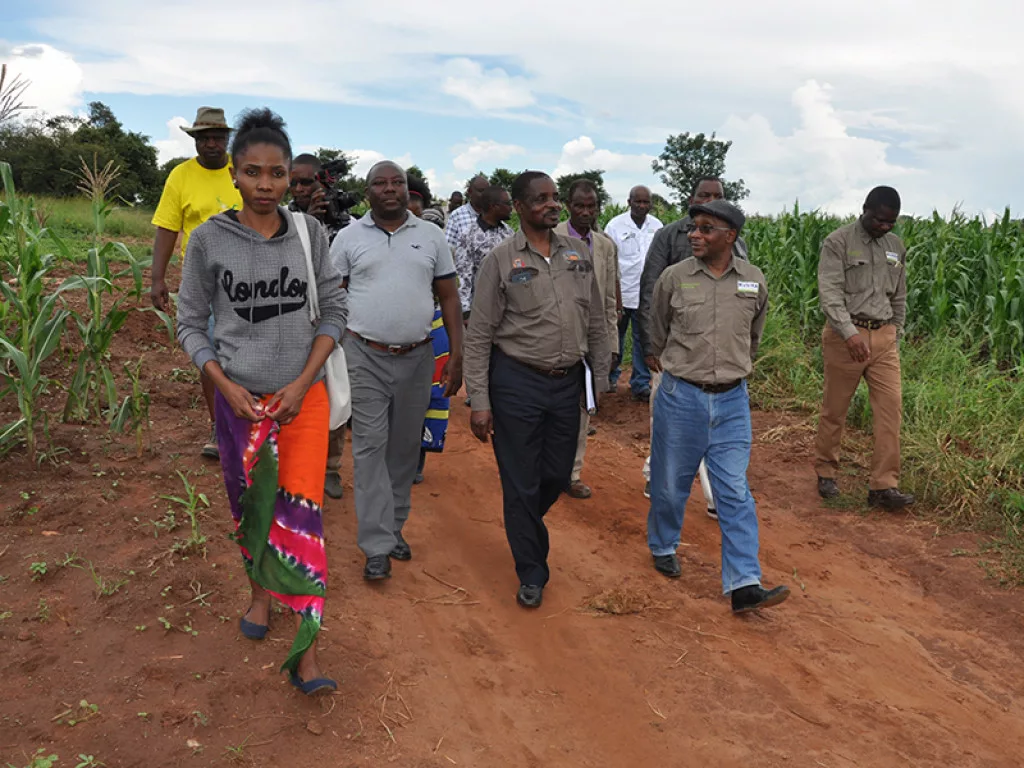
COVID-PROOFING ZAMBIA’S AGRICULTURAL SECTOR
The global coronavirus pandemic affected many sectors and industries, Zambia’s agricultural sector being one of them.
Musika conducted a study to assess the impact of the virus on agribusinesses and discovered that 84 percent had been negatively impacted by regulatory measures, their operations and revenue suffering. Particularly affected were those offering financial services, input supply and environment services.
To help mitigate this, Musika created a $100,000 COVID-19 response fund to ensure business continuity, which helped 437 SME agribusinesses. As part of its CSR it also collaborated with government ministries to supply agro-dealers with hand soap, sanitiser, foot-operated hand washing equipment and masks. They were also placed in public areas – such as markets, aggregation points and abattoirs – with high touch points, accompanied by behavioural change messages in multiple languages.
“This intervention underscores the need for Musika’s corporate social responsibility (CSR) response, which aligns with and builds on Zambia’s current priority of supporting and strengthening its already vulnerable health and public system,” Banda explains.
However, despite significant disruption, the sector is proving resilient and may even record positive growth this year. One reason for this, according to Banda, was the recent adoption of digital finance.
“Digital finance, and particularly the use of mobile money, also offered great prospects for unlocking financial inclusion for rural communities and greater engagement of women in 2020,” the Managing Director explains.
“With the outbreak of the COVID-19 epidemic in March, the use of ecommerce platforms registered positive results, with agribusiness utilising these to order stock delivered at their doorstep and transact in the midst of restricted movements.”
Another somewhat surprising result of the pandemic was that crops such as cassava were used as raw materials for ethanol production (which was used in sanitiser), which pushed up both the demand and the price of the crop, something that farmers directly benefitted from.
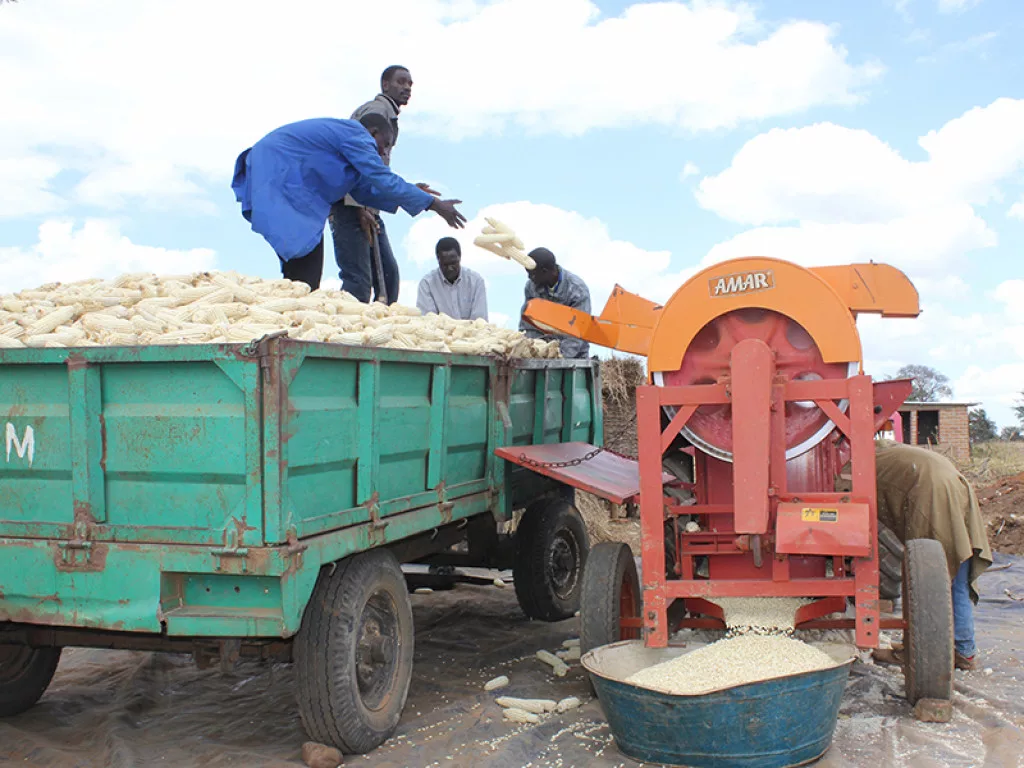
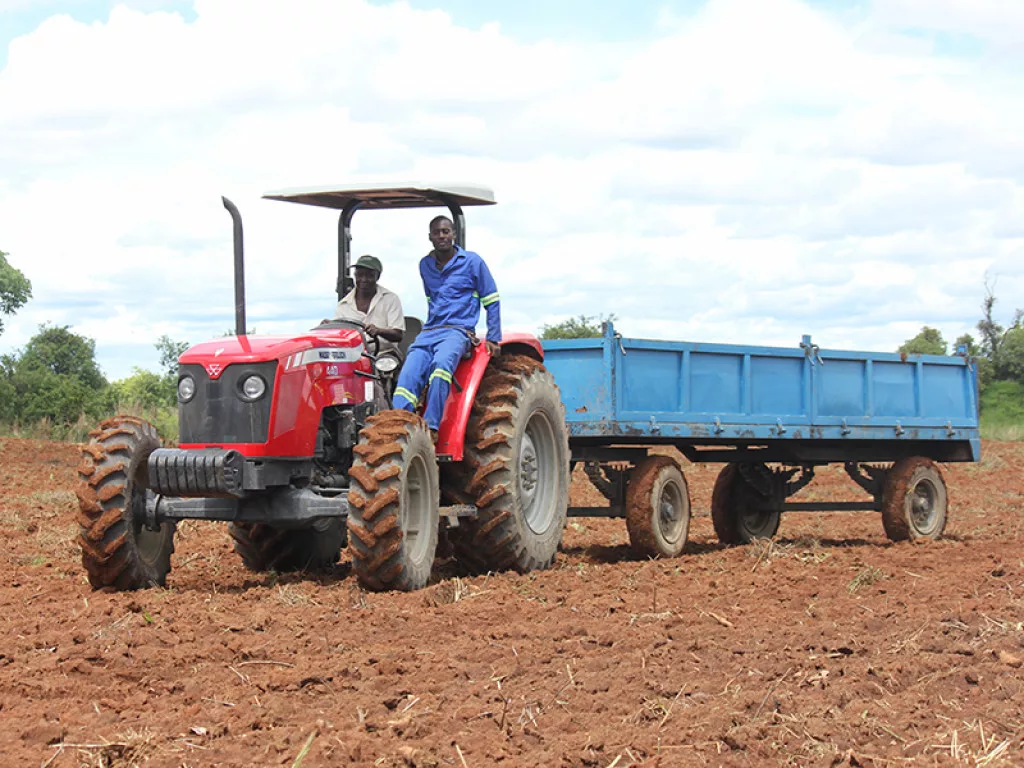
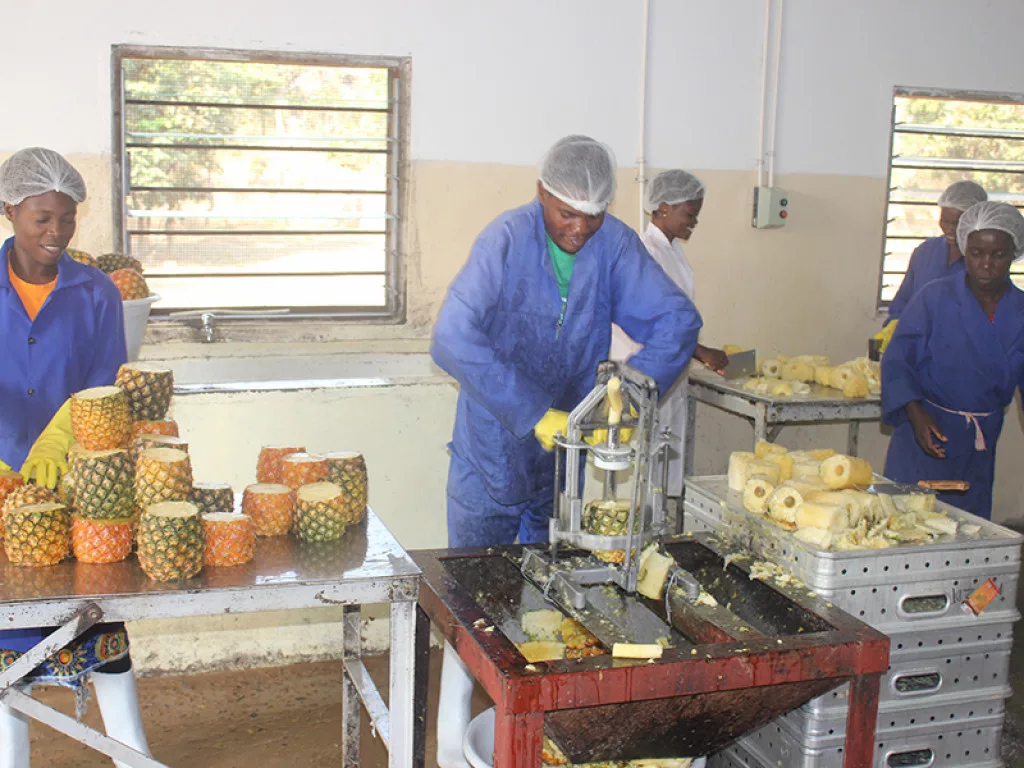
TRANSFORMATIONAL PROJECTS AND TECHNOLOGIES
Despite the disruptive nature of the pandemic, Musika was able to continue working with smallholders and private sector partners to deliver interventions in the agriculture industry.
This year Musika has been stimulating the market to help bring a range of productivity-enhancing technologies – farm machinery, irrigation and effective business ideas – to small-scale famers.
“For farmers to get more out of their land they need to work more efficiently in carrying out their farm operations from land preparation, planting and harvesting by mechanising their farm operations,” Banda says.
“Additionally, the use of irrigation technologies enables them to diversify their production from the over reliance on rain-fed crops like maize to horticulture, and remain productive all year round, resulting in increased household income.”
This, in turn, helps climate-proof farms, meaning that in drought seasons their entire income won’t be destroyed by one failed crop.
In short, Musika’s current objective is to develop a vibrant agricultural technology sector, in which manufacturers and suppliers develop and market affordable and appropriate solutions for smallholder farmers. The technologies should be accompanied with relevant training and advice, after-sales support and accessible finance solutions so it can be used by a broader range of farmers.
Increased smallholder productivity will not only benefit individuals, but uplift communities and drive economic development within the country.
According to the Managing Director, one of the most transformational technologies this year has proven to be the two-wheel tractor. Musika supported an initiative to make two-wheel tractors (TWT) more accessible to women farmers by using a subsidy. In last year’s pilot study, 16 out of 20 tractors were purchased. But the number rapidly increased – 49 have been sold to date.
On this initiative, Musika has been working with an asset financing company, AgLeaseCo, and agricultural manufacturer SARO Agri-services, which has a target to reach out to 150 women farmers across Zambia to help provide affordable TWTs.
“This initiative is empowering for women, the majority of whom are engaged in back breaking manual labour, as it enables them to work more efficiently and leaves enough time available to engage in other economic activities,” Banda says.
“The women also have a business opportunity by using the equipment to provide tillage services to others within the local community at a fee, and part of the income generated is channelled towards loan repayment.”
Another project Musika has been working on this year is the Trees on Farms initiative. The initiative is an integral part of one of its key focus areas to stimulate tree-based production systems on smallholder farms as a way of counteracting deforestation. Agriculture, especially arable land and mono-cropping, causes the destruction of a quarter of a million hectares of forest every year in Zambia, which results in erosion, loss of biodiversity and worsening of air quality.
However, tree crops and other perennials represent an opportunity to counteract deforestation, and furthermore, are more resilient to climactic variations.
“Musika is working with private sector partners to develop commercial nurseries and carry out sensitisation, training and distribution of tree seedlings,” the Managing Director explains. “There is more work to be done in the development of market oriented smallholder trees on farms systems such as addressing issues surrounding securing land tenure and use conditions; supportive policy conditions; access to and knowledge regarding the management of quality germplasm; tree management skills and information; and adequate market information and linkages.”
The organisation’s numerous interventions into the agricultural sector necessitate forming strong, trusting relationships with both partners and suppliers. Musika procures inputs for all its interventions, receiving funding support from the Swedish Embassy in Lusaka, the Norwegian governments NORAD, Irish Aid and WorldFish, following a competitive procurement process to attract the best partners.
“In terms of partnerships, Musika’s resources are not just spent or donated; all of Musika spending on activities is done on a cost-share basis with the partners to de-risk the initial cost of their investment and ensure a sense of ownership of the intervention by the partner,” Banda says.
Over the upcoming year, Musika aims to continue with its transformational initiatives, especially in widening participation for women farmers and enabling them to benefit from agricultural opportunities and technologies.
“Great strides are being made by Musika and its private sector partners in pushing equal access and control of productivity enhancing innovations available in the market space, with women and youth inclusion top of the agenda in poverty eradication,” Banda explains.
Musika will also be continuing to help smallholders diversify production in order to achieve profitability.
“On the aspect of diversifying smallholder production options, investments in the fresh fruit and vegetable (FFV) markets and aquaculture are expected to gain traction and contribute to better incomes and resilience at household level,” the Managing Director concludes.



